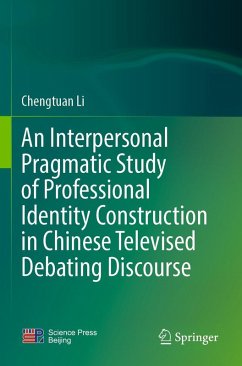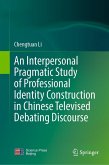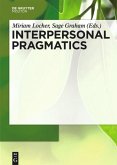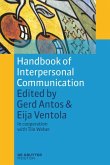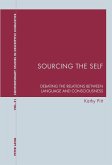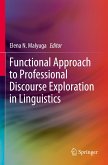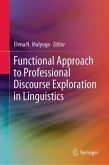This book explores debaters' professional identity construction through implicit negation in televised debates from an interpersonal pragmatic perspective. It reveals the linguistic strategies used to indirectly negate the identity of others, and highlights three pairs of professional identity constructed through implicit negation: (1) expert vs. non-expert identity, (2) outsider vs. insider identity, (3) authentic vs. false identity. Furthermore, it proposes the Inter-relationality Principle, self-through-other identity and other-through-self identity, which contribute to Bucholtz and Hall's theory of identity construction. Lastly, the book discusses the relations between professional identity construction through implicit negation and im/politeness, and builds a model of professional identity construction through implicit negation based on interpersonal pragmatics.
By focusing on the interpersonal pragmatics of professional identity construction, the book advances the interpersonal pragmatic study of identity construction, im/politeness and implicit negation. As such, it is a valuable resource for a broad readership, including graduate students, and scholars who are interested in professional identity construction, implicit negation and im/politeness research.
By focusing on the interpersonal pragmatics of professional identity construction, the book advances the interpersonal pragmatic study of identity construction, im/politeness and implicit negation. As such, it is a valuable resource for a broad readership, including graduate students, and scholars who are interested in professional identity construction, implicit negation and im/politeness research.

